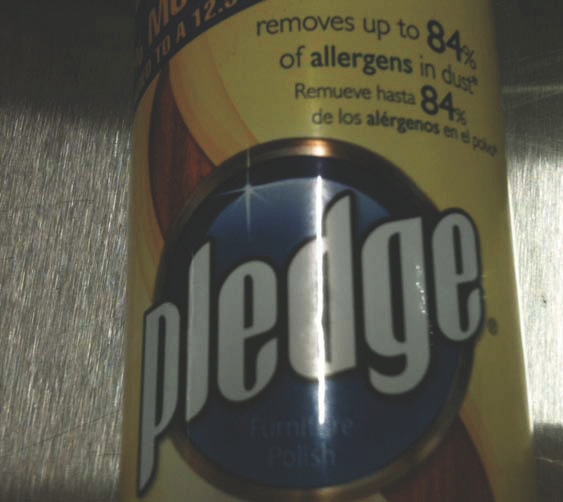
Source: Photo courtesy of Sasha Wolff, http://www.flickr.com/photos/sashawolff/3388815964.
To foster ethical discussion and understanding in the workplace, the Lockheed Martin company developed a quiz for employees called “Gray Matters.” The quiz is multiple choice, with a range of points awarded (or subtracted) depending on the response. Subsequently, the approach has been adopted by a wide range of corporations. Here’s a typical question matched with its possible answers and the corresponding points:
Six months after you hired an assistant accountant who has been working competently and responsibly, you learn that she departed from the truth on her employment application: she claimed she had a college degree when she didn’t. You’re her manager; what should you do?
One of the most important questions about a situation’s facts is “who’s involved?”
What’s the difference between morality and ethics?

Source: Photo courtesy of Tobias Myrstrand Leander, http://www.flickr.com/photos/s8an/5207806926/.
Connie Guglielmo, a reporter for Bloomberg news services, begins an article on Apple this way: “Apple Inc. said three of its suppliers hired 11 underage workers to help build the iPhone, iPod and Macintosh computer last year, a violation it uncovered as part of its onsite audit of 102 factories.”Connie Guglielmo, “Apple Says Children Were Used to Build iPhone, iPod (Update1),” Bloomberg, February 27, 2010, accessed May 11, 2011, http://www.bloomberg.com/apps/news?pid=newsarchive&sid=aiEeeQNHkrOY.
Her story adds details. The underage workers were fifteen in places where the minimum legal age for employment is sixteen. She wasn’t able to discover the specific countries, but learned the infractions occurred in one or more of the following: China, Taiwan, Thailand, Malaysia, Singapore, South Korea, the Czech Republic, and the Philippines.
Following the discovery, the employees were released, and disciplinary action was taken against a number of the foreign suppliers. In one case, Apple stopped contracting with the company entirely.
The story closes with this: “Apple rose $2.62 to $204.62 yesterday in Nasdaq Stock Market trading. The shares more than doubled last year.”
Assume that in the countries where fifteen-year-olds were working, it’s customary for children even younger to earn an adult-type living.
Attributing responsibility—blaming another for doing wrong—requires that the following conditions hold:
Assuming it’s unethical for fifteen-year-olds to work factory shifts making iPhones, who bears responsibility for the wrong?

Since 2006, students at the Columbia Business School have been required to pledge “I adhere to the principles of truth, integrity, and respect. I will not lie, cheat, steal, or tolerate those who do.”
This is a substantial promise, but it doesn’t sound like it’ll create too many tremendous burdens or require huge sacrifices.
A somewhat more demanding pledge solidified in 2010 when a group of business school students from Columbia, Duke Fuqua, Harvard, MIT Sloan, NYU Stern, Rensselaer Lally, Thunderbird, UNC Kenan-Flagler, and Yale met to formalize the following MBA Oath:
As a business leader I recognize my role in society.
Therefore, I promise that:
In exercising my professional duties according to these principles, I recognize that my behavior must set an example of integrity, eliciting trust and esteem from those I serve. I will remain accountable to my peers and to society for my actions and for upholding these standards.“The MBA Oath,” MBA Oath, accessed May 11, 2011, http://mbaoath.org/about/the-mba-oath.
All this pledging and oathing suddenly popping up at business schools drew the attention of the New York Times, and soon after, an article appeared: “A Promise to Be Ethical in an Era of Immorality.”Leslie Wayne, “A Promise to Be Ethical in an Era of Immorality,” New York Times, May 29, 2009, accessed May 11, 2011, http://www.nytimes.com/2009/05/30/business/30oath.html. Many of the readers’ comments at the end are interesting. The commenter paulnyc writes that “most students go to MBA programs to advance their careers and to earn more money, pure and simple, and there is nothing wrong with it.”paulnyc, May 30, 2009 (10:58 a.m.), comment on Leslie Wayne, “A Promise to Be Ethical in an Era of Immorality,” New York Times, May 29, 2009, accessed May 11, 2011, http://community.nytimes.com/comments/www.nytimes.com/2009/05/30/business/30oath.html?sort=oldest.
The commenter JerryNY wrote, “Greed IS good as long as it is paired with the spirit of fairness. Virtually all of the major advances in science and technology were made with greed as one of the motivating factors. Gugliemo [sic] Marconi, Alexander Graham Bell, Bill Gates, Henry Ford and Steve Jobs would not have given us the life changing technological advances of our time were it not for personal greed. Remove that element, and your class is destined for mediocrity.”JerryNY, May 30, 2009 (10:51 a.m.), comment on Leslie Wayne, “A Promise to Be Ethical in an Era of Immorality,” New York Times, May 29, 2009, accessed May 11, 2011, http://community.nytimes.com/comments/www.nytimes.com/2009/05/30/business/30oath.html?sort=oldest.
Is it plausible to assert that JerryNY shares most of the values of those who wrote the MBA Oath, it’s just that he sees a different business attitude as the best way to serve those values? If so, explain. If not, why not?
Eric writes,
I would refuse to take that oath…on principle. The idea that an individual’s proper motive should be to serve “the greater good” is highly questionable. This altruistic ethic is what supported the collectivist of communism and national socialism. If my life belongs first and foremost to “the greater good,” it follows that the greatest virtue is to live as a slave. A slave’s existence, after all, is devoted primarily for the benefit of his master. The master can be a plantation owner or a King or an oligarchy or a society that demands your servitude.
The only oath I’d be willing to take is, “I swear, by my life and my love of it, that I will never live for the sake of another man, nor ask another man to live for mine.”Eric, May 30, 2009 (10:35 a.m.), comment on Leslie Wayne, “A Promise to Be Ethical in an Era of Immorality,” New York Times, May 29, 2009, accessed May 11, 2011, http://community.nytimes.com/comments/www.nytimes.com/2009/05/30/business/30oath.html?sort=oldest.
In your own words, contrast the values the MBA Oath supporters espouse with the values the commenter Eric espouses.
The commenter Clyde Wynant is skeptical. He writes this about those who take the MBA Oath: “Call me hyper-cynical, but I can’t help wondering if a lot of these kids aren’t hoping that having this ‘pledge’ on their résumé might help them look good.”Clyde Wynant, May 30, 2009 (10:55 a.m.), comment on Leslie Wayne, “A Promise to Be Ethical in an Era of Immorality,” New York Times, May 29, 2009, accessed May 11, 2011, http://community.nytimes.com/comments/www.nytimes.com/2009/05/30/business/30oath.html?sort=oldest.
Is it unethical to take the pledge without expecting to adhere to it simply because you think it will help in your job search, or is that strategy just a different kind of ethics? Explain.
The commenter Mikhail is skeptical. He writes, “Give me a break…With the next upswing of the economy, these leeches will be sucking the lifeblood out of our collective economies like the champions they truly are!!! Yes, perhaps opportunistic parasites every last one of them—but really, it’s not their fault—they’re just programmed that way.”Mikhail, May 30, 2009 (10:35 a.m.), comment on Leslie Wayne, “A Promise to Be Ethical in an Era of Immorality,” New York Times, May 29, 2009, accessed May 11, 2011, http://community.nytimes.com/comments/www.nytimes.com/2009/05/30/business/30oath.html?sort=oldest.
When he says business school students are programmed, what does he mean? If someone is programmed to be an opportunistic parasite in business, can we blame them for what they do? If so, how? If not, who should be blamed?
The commenter as is skeptical. He writes, “Don’t make me laugh. If they are so concerned about the ‘greater good,’ go into teaching and nursing.”as, May 30, 2009 (10:35 a.m.), comment on Leslie Wayne, “A Promise to Be Ethical in an Era of Immorality,” New York Times, May 29, 2009, accessed May 11, 2011, http://community.nytimes.com/comments/www.nytimes.com/2009/05/30/business/30oath.html?sort=oldest.
Assume the MBA Oath does stress the importance of the greater good, and you too are going into the economic world with that as a privileged value. How could you respond to the argument that you really should be doing nursing or something more obviously serving the general good?
“Look at them!” he said, his eyes dancing. “That’s what it’s all about, the way the people feel. It’s not about the sellout performances and the caliber of the bands who appear here. It’s about the people who buy tickets, having a good time.”Avis Thomas-Lester, “A Club Owner’s Mojo,” Washington Post, December 28, 2009, accessed May 11, 2011, http://views.washingtonpost.com/on-success/what-it-takes/2009/12/seth_hurwitz.html.

Source: Photo courtesy of Kevin Dooley, http://www.flickr.com/photos/pagedooley/4530723795/.
That’s Seth Hurwitz quoted in the Washington Post, talking about his 9:30 Club, a small venue playing over-the-hill bands on the way down, and fresh acts scratching their way up.
The story’s curious detail is that even though Hurwitz calls his company I.M.P. (It’s My Party), he doesn’t spend much time at his club. In fact, he’s almost never there. Part of the reason is that his workday begins at 6 a.m., so he’s actually back in bed preparing for the next day before his enterprise gets going in earnest each night. His job is straightforward: sitting in the second floor office of his suburban DC home, he scrutinizes the music publications and statistics, probing for bands that people want to see and that won’t charge too much to appear. He told the Post that he won’t book an act as a favor, and he won’t flatter a group into playing his club to keep them away from the competition by overpaying them. “I don’t subscribe,” he says, “to doing shows that will lose money.”
Hurwitz has been connected with music in one way or another for almost as long as he can remember. The Post relates some of his early memories:
He rigged a system to broadcast radio from his basement to his parents and brothers in the living room. “I used to bring my singles into class and play them,” Hurwitz said. When he was 16, he decided he wanted to be a deejay and got his chance when alternative rock station WHFS gave him a spot. “It was from 7:45 to 8—fifteen minutes,” he said, laughing. “But that was okay because I wanted to be on the radio, and I had my own show, as a high school student.” He said he was fired “for being too progressive.”Avis Thomas-Lester, “A Club Owner’s Mojo,” Washington Post, December 28, 2009, accessed May 11, 2011, http://views.washingtonpost.com/on-success/what-it-takes/2009/12/seth_hurwitz.html.
It’s a long way from getting fired for playing music too obscure for alternative radio to where Hurwitz is now: putting on concerts by bands selected because they’ll make money.
Hurwitz is brutally honest about the fact that he’ll only contract bands capable of turning a profit. When he was younger and a deejay, he insisted on playing the music he judged best no matter how many people turned off the radio when his show came on (an attitude that cost him the job).
Hurwitz says that he doesn’t book bands as favors. Presumably at least some of the favors he’s talking about would be to friends.
Most of Hurwitz’s shows are on weeknights. Some concertgoers may have such a good time that they can’t make it in to work the next day.